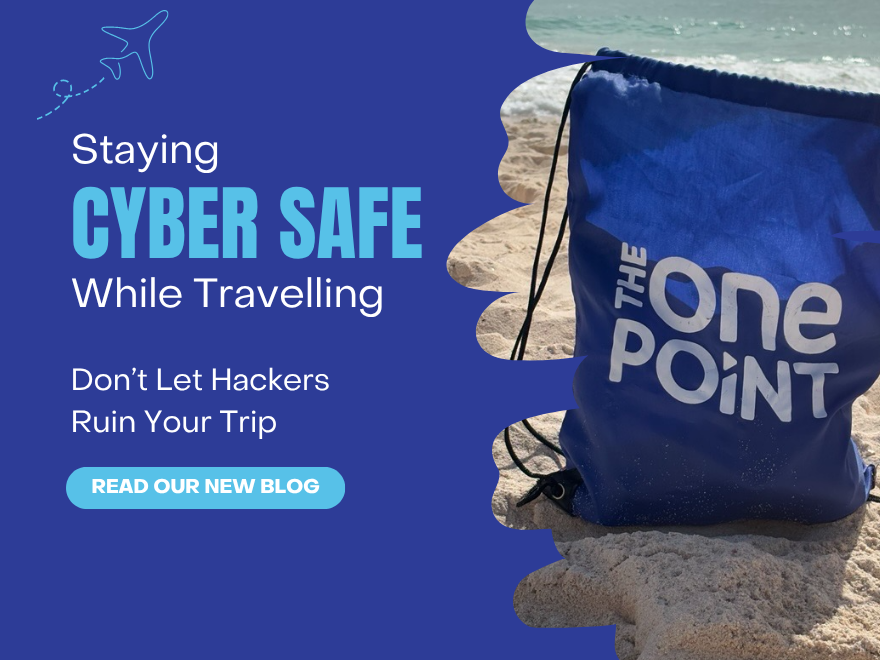
Staying Cyber Safe While Travelling: Don’t Let Hackers Ruin Your Trip
Whether you’re jetting off for a business meeting or heading abroad on holiday, it’s now second nature to pack your mobile phone, tablet, or laptop. With travel apps, online booking, and a constant urge to share updates on social media, we’re more connected than ever to a cybercriminal that is a gateway to your data.
Cybersecurity threats don’t take a break when you do. Your travel habits can create new vulnerabilities that hackers are ready to exploit. Here’s how to stay cyber safe while travelling and the key IT security precautions you should take.
Travel-based threats are increasing.
Cybercriminals are opportunists. They often impersonate legitimate travel agents or booking platforms to launch phishing scams. These deceptive emails or messages may contain links to fake websites that look incredibly real. Once you input personal information or payment details, your data is instantly compromised.
But not all threats happen online. Social engineering scams are becoming more common at travel destinations. A criminal might pose as a helpful tourist or local guide and offer to take a photo for you using your phone – only to gain access to your data or install malware in a matter of seconds.
Data Risks on Public Wi-Fi Networks
Many travellers rely on free public Wi-Fi at airports, hotels, and cafes. But these unsecured networks are a goldmine for cyber attackers. Without strong encryption, anything you send or receive online – from emails to login credentials could be intercepted.
A Virtual Private Network (VPN) is an essential cybersecurity tool for any traveller. It encrypts your internet connection, keeping your browsing private and shielding sensitive data from prying eyes.
Social Media Oversharing Can Lead to Identity Theft
Innocent holiday snaps can be riskier than you think. Posting real-time updates or sharing images of your boarding passes, ID cards, or passports can provide attackers with key details that can be used in identity theft or targeted scams.
Always review your privacy settings and consider waiting until you return before sharing location-based updates online.
TOP Cybersecurity Tips for Travellers
Before your next trip, follow these IT and data protection best practices:
- Avoid Phishing traps: Only book travel through trusted, official websites. Ignore unsolicited emails or text messages offering “too-good-to-be-true” deals.
- Be cautious with your tech: Never hand your device to a stranger – even for a photo. Lock your devices when not in use and enable two-factor authentication (2FA) for extra protection.
- Secure your connection: Use a VPN when connecting to public Wi-Fi and avoid accessing sensitive information such as bank accounts or work emails over open networks.
- Think before you post: Keep your social media accounts private, and never share personal or travel documents online.
Cyber threats don’t take holidays – and neither should your cybersecurity practices. By staying alert and following good cyber hygiene, you can enjoy your travels without compromising your personal or financial information.
Whether you’re an individual traveller or an organisation with employees frequently on the move, travel cybersecurity awareness is critical. Stay safe. Stay secure.
